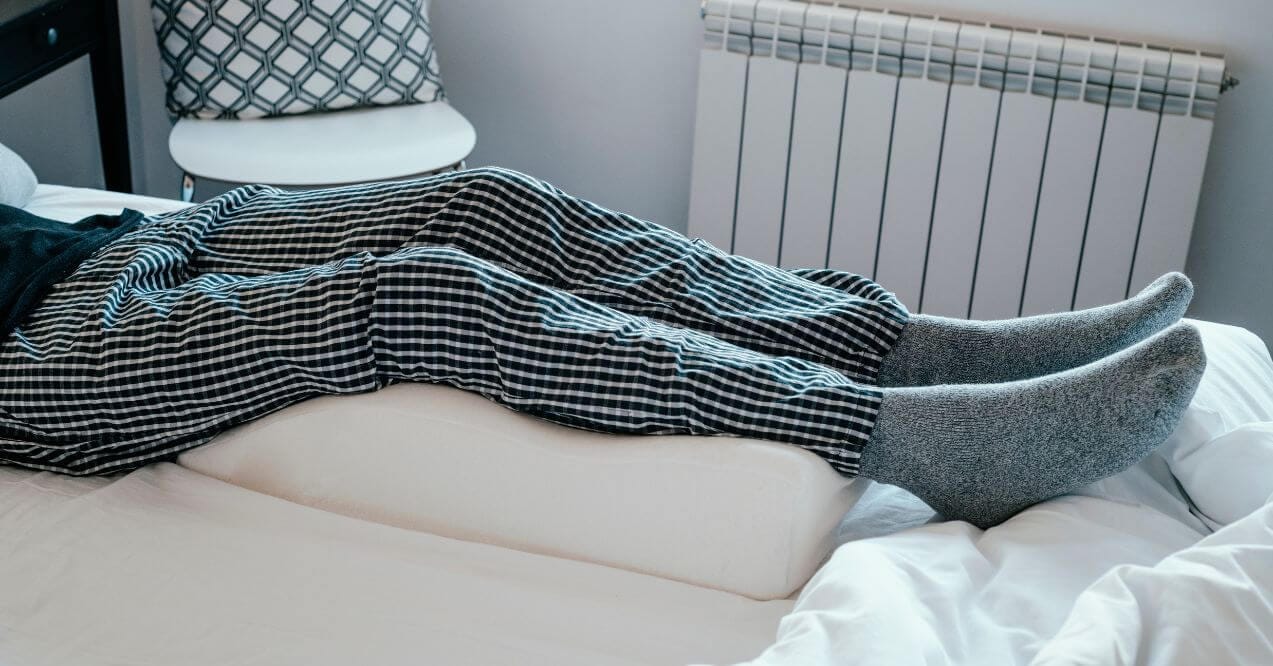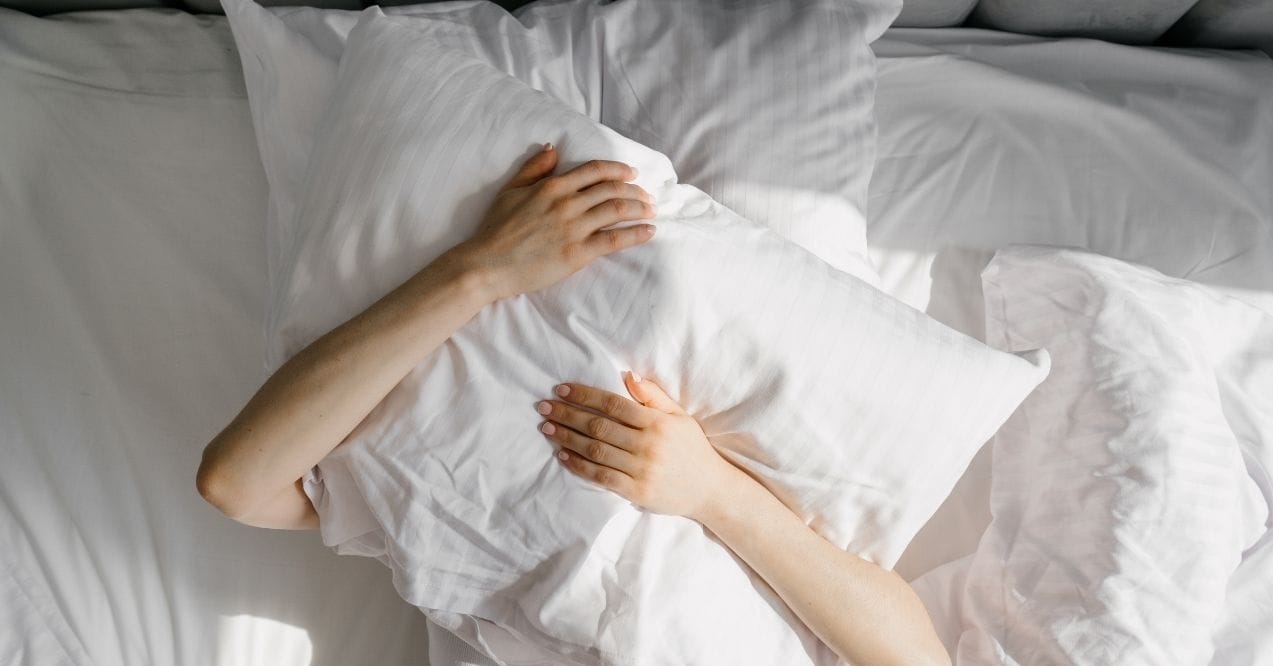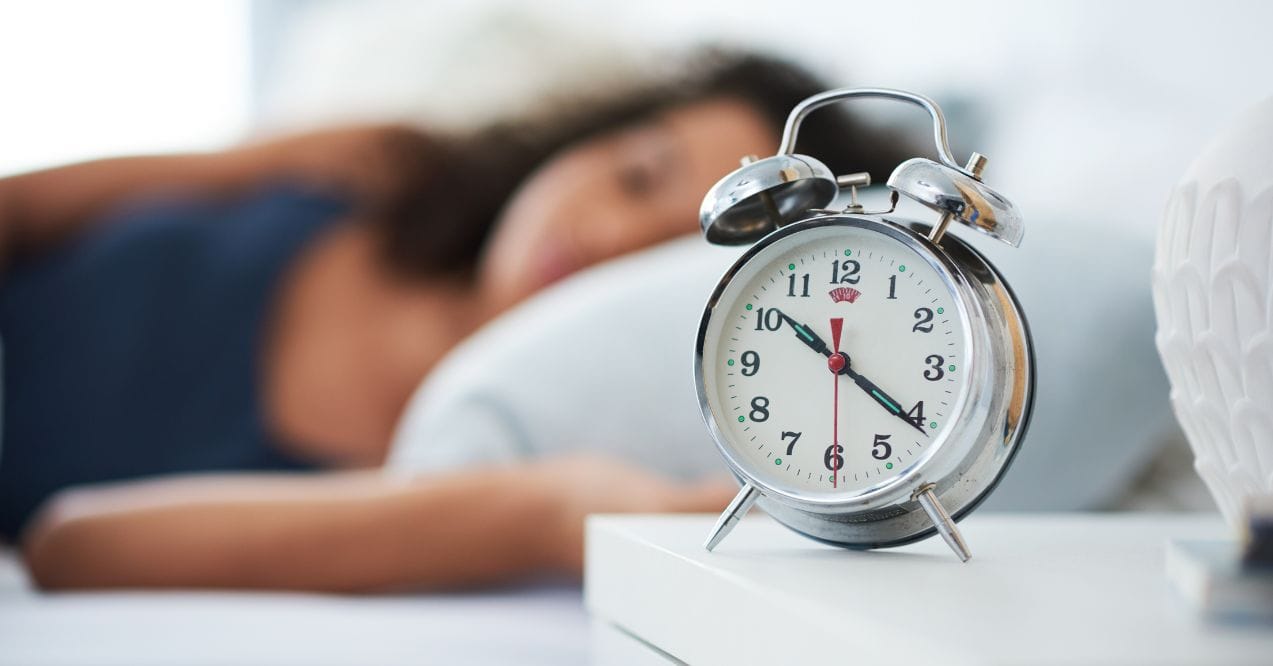Can Lack of Sleep Cause Nausea? How to Prevent It?
Can lack of sleep cause nausea? Learn about the primary reasons like inflammation and gut issues, and why they can trigger nausea.
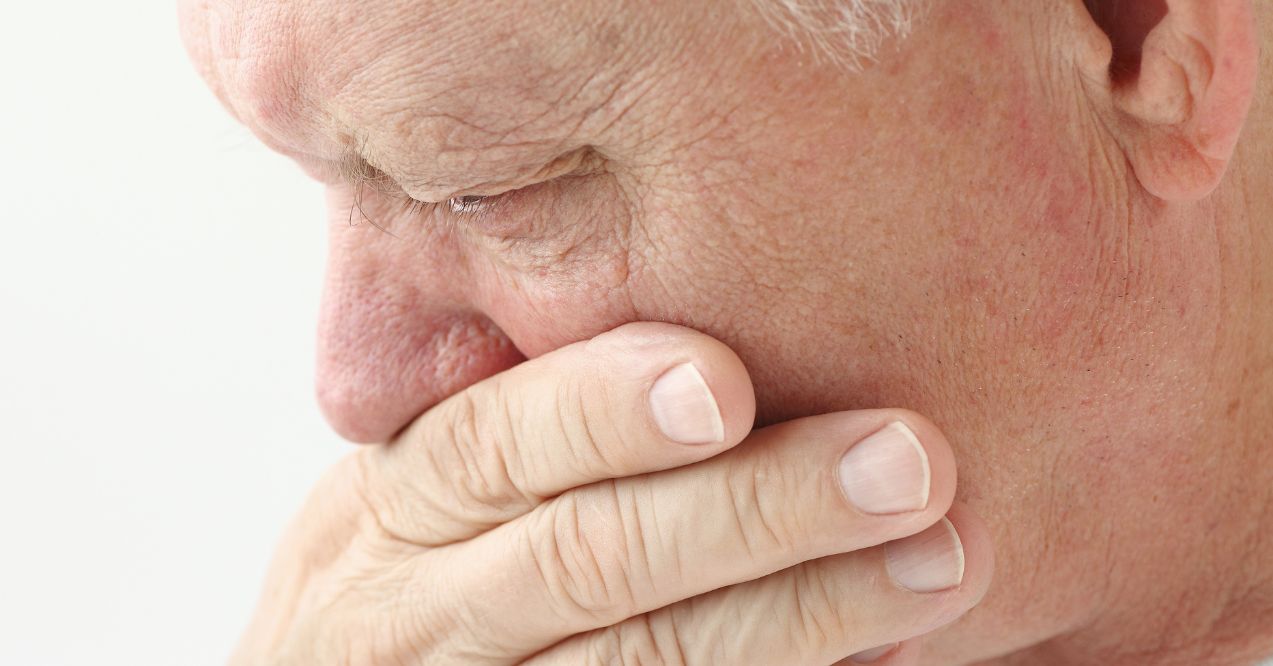

Ever woken up feeling queasy after a restless night? As we journey through our 60s and beyond, many of us find ourselves wondering, can lack of sleep cause nausea? It’s a question worth exploring, especially as our sleep patterns change with age.
Did you know that adults over 60 who struggle with sleep are 1.5 times more likely to experience digestive issues? Understanding how to prevent nausea from lack of sleep becomes increasingly important as we age.
Join us as we look into the surprising link between sleep deprivation and stomach discomfort. We’ll explore why those precious hours of shut-eye matter more than ever in our golden years, and share simple, age-friendly tips for better sleep. Learn when it’s time to chat with your doctor about sleep-related nausea, and discover how to wake up feeling refreshed and stomach-trouble free!
What Is Nausea?
In essence, nausea is a sensation of discomfort in the stomach, often accompanied by the urge to vomit. It’s a common symptom that can arise from various causes, ranging from motion sickness and certain foods to more serious medical conditions.
While not a disease in itself, nausea serves as a protective mechanism, signaling the body to avoid consuming or expelling potentially harmful substances. Despite its protective role, persistent or severe nausea can significantly impair an individual’s quality of life. It can lead to difficulties in eating, affect concentration and performance at work or school, and cause a general sense of malaise that dampens daily activities.
Can Lack of Sleep Cause Nausea?
So, can lack of sleep cause nausea? Yes, it indeed can. Failing to get enough sleep doesn’t just leave us feeling groggy and unfocused; it can also disrupt the delicate balance of our body systems, leading to physical symptoms like nausea. A primary reason for this is the effect of sleep deprivation on the immune system. Without adequate rest, the body’s immune response weakens, increasing our susceptibility to overactive inflammatory responses and pathogenic attack that can contribute to a nauseous feeling.
Furthermore, sleep deprivation can lead to gastrointestinal disturbances. The body depends on sleep to maintain proper digestive function. Deprived of sleep, our stomach and intestines may not operate as efficiently, resulting in symptoms such as nausea, bloating, and discomfort. This often explains why people experience nausea from lack of sleep.
Another factor to consider is the psychological strain caused by lack of sleep. Chronic sleep deprivation can lead to stress and anxious feelings, which are well-known triggers for feeling nauseous and tired all the time. Why does my body feel heavy? This question may also arise if you are getting inadequate rest since it disrupts the body’s natural rejuvenation process. Without sufficient sleep, your muscles may not have the opportunity to fully relax and recover, leading to a sensation of heaviness and fatigue.
By disrupting our immune system and causing inflammatory activity leading to poor digestion, lack of sleep can indeed make us feel nauseous, highlighting the necessity of prioritizing good sleep hygiene for our overall health.
Why Sleep Deprivation Is a Big Issue?
Sleep deprivation can lead to a variety of health problems, impacting nearly every aspect of our physiology. From the functioning of our digestive, nervous, and immune systems to our emotional and mental health, the effects of sleep deprivation are profound and interconnected, setting the stage for conditions like nausea. This connection between lack of sleep and nausea is particularly concerning, as it highlights how essential a restful night is for our bodily systems to operate harmoniously.
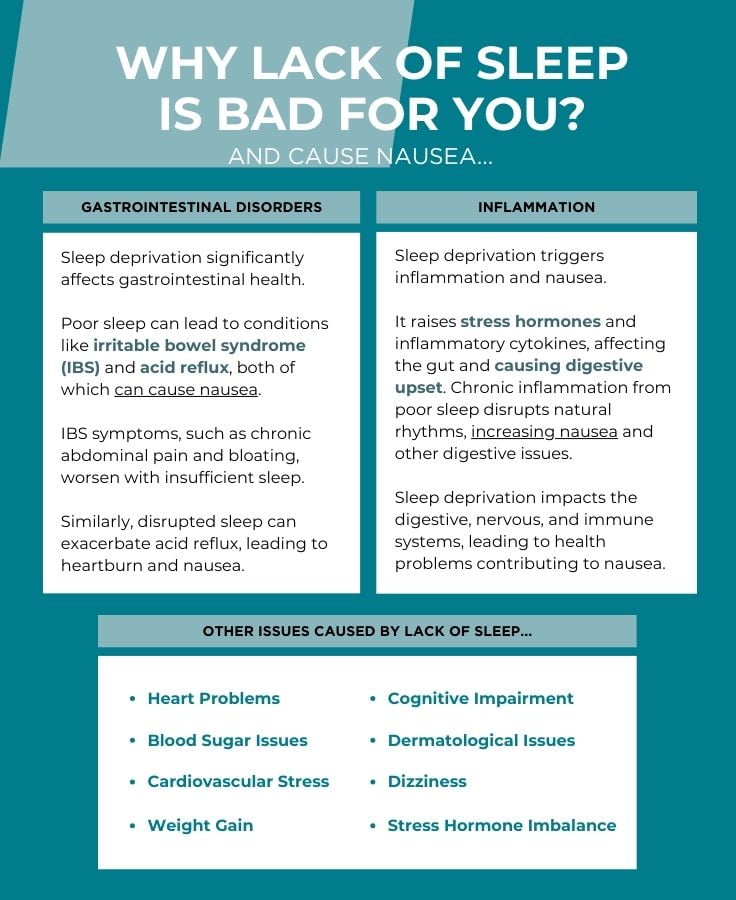
Gastrointestinal Disorders
One of the primary areas affected by sleep deprivation is gastrointestinal health. The relationship between sleep and the digestive system is complex, with insufficient sleep potentially leading to disorders that may cause nausea. For instance, conditions such as irritable bowel symptoms and acid reflux have been linked to poor sleep quality and duration.
Irritable bowel symptoms are characterized by chronic abdominal pain, bloating, and altered bowel habits, and can be exacerbated by lack of sleep, leading to increased severity and episodes of nausea. Similarly, acid reflux, which causes stomach acid to flow back into the esophagus causes heartburn and can also lead to nausea, especially when sleep patterns are disrupted.
Inflammation
The relationship between lack of sleep and inflammation is closely related to feelings of nausea. When the body is deprived of sleep, it responds by increasing the production of stress hormones and inflammatory cytokines. This inflammatory response can be particularly problematic in the gut, leading to an upset digestive system and symptoms such as nausea. Moreover, chronic inflammatory activity due to poor sleep can disrupt the body’s natural rhythms, leading to a heightened sense of nausea and other digestive issues.
By affecting the body’s digestive, nervous, and immune systems, sleep deprivation sets the stage for a range of health issues that can directly contribute to feelings of nausea.
How Else Does Sleep Deprivation Impact Your Body?
Sleep deprivation impacts the body in numerous profound and potentially worrying ways, far beyond the discomfort of nausea. It intrudes on nearly every facet of our health, from our hearts to our skin, altering the delicate balance within and setting the stage for chronic conditions. Here are a few other effects of lack of sleep beyond the nausea symptom:
- Heart Problems – Sleep plays a critical role in heart health. Lack of sleep has been linked to an increased risk of cardiovascular dysfunction, including life-threatening heart events and heart failure. This connection is partly due to the way sleep influences processes that keep your heart and venous system healthy, including those that affect your blood sugar, circulation, and inflammatory marker levels. Insufficient sleep can disrupt these processes, leading to an increased risk of cardiovascular problems.
- Blood Sugar Issues – Sleep affects the body’s ability to regulate glucose levels, which can increase the risk of glucose sensitivity and impaired blood sugar. During sleep, the body works to maintain glucose levels in a normal range. Lack of sleep disrupts this balance, leading to higher blood sugar levels and reduced glucose sensitivity, making it harder for glucose to enter the cells.
- Cardiovascular Stress – Sleeping less than 7-8 hours a night can lead to stress on the cardiovascular system. During sleep, the body’s venous system relaxes, giving the heart and circulatory system a bit of a rest. Less sleep means a longer period of stress on venous walls during a 24-hour cycle, increasing the risk of heart problems.
- Weight Gain – There’s a strong link between insufficient sleep and weight gain, driven by hormonal imbalances. Lack of sleep affects the hormones that regulate hunger – ghrelin and leptin – leading to increased appetite and calorie intake. Additionally, sleep deprivation can lead to decreased motivation to exercise, contributing further to weight gain.
- Cognitive Impairment – Sleep is crucial for cognitive processes. It affects concentration, memory, and the ability to learn. Sleep deprivation can lead to cognitive impairments, such as confusion and memory loss, because it interferes with the brain’s ability to function properly. The clearing of toxins from the brain, a process that occurs during deep sleep, is also compromised, potentially contributing to long-term cognitive decline.
- Dizziness – Lack of sleep can cause feelings of lightheadedness or dizziness, which can affect balance and coordination. This is due to the brain’s impaired ability to regulate bodily functions and respond to changes in posture and balance.
- Stress Hormone Imbalance – Sleep regulates the body’s stress hormones, such as cortisol. When you don’t get enough sleep, cortisol levels can rise, leading to an increased feeling of stress and anxious feelings. This hormonal imbalance can exacerbate the cycle of sleeplessness, creating a feedback loop that’s hard to break.
- Sleep regulates the body’s stress hormones, such as cortisol. When you don’t get enough sleep, cortisol levels can rise, leading to increased feelings of stress and anxiety. This hormonal imbalance can exacerbate the cycle of sleeplessness, creating a feedback loop that’s hard to break. Many people wonder, how long does it take to balance hormones after such disruptions, as restoring balance can take time and effort, particularly when the sleep-stress cycle is deeply entrenched.
- Dermatological Issues – Sleep is when the body repairs itself, and this includes the skin. Lack of sleep can lead to a variety of skin problems, including dull, dry, or itchy skin. This is because sleep deprivation can reduce the skin’s ability to stay hydrated and repair itself from environmental stressors like sun damage and pollution.
In short, sleep deprivation is a pervasive issue that impacts nearly every aspect of our health. From heart problems to cognitive impairments and dermatological issues, the consequences of missing out on restorative sleep are both broad and significant.
Tips for Getting More Sleep
Improving sleep quality is essential for overall health and can significantly enhance your energy levels throughout the day. If you’re experiencing nausea in the middle of the night or wondering how to increase energy levels here are practical tips to help you achieve a better night’s rest:
- Maintain a Regular Sleep Schedule – Consistency is key. Try to go to bed and wake up at the same time every day, even on weekends. This helps regulate your body’s internal clock and can improve the quality of your sleep, reducing instances of nighttime nausea.
- Create a Restful Sleeping Environment – Your bedroom should be a sanctuary for sleep. Ensure it’s quiet, dark, and at a comfortable temperature. Consider using earplugs, blackout curtains, or a white noise machine to block out disturbances. A comfortable mattress and pillows are also crucial.
- Avoid Stimulants Before Bedtime – Caffeine and nicotine are stimulants that can keep you awake, so avoid coffee, tea, chocolate, and cigarettes for at least four to six hours before bedtime. Similarly, while alcohol might help you fall asleep faster, it disrupts sleep later in the night, leading to poorer quality rest and potential nausea.
- Wind Down Before Bed – Establish a relaxing pre-sleep routine to help signal your body that it’s time to wind down. This could include reading, taking a warm bath, or practicing relaxation exercises like deep breathing or meditation.
- Limit Screen Time – The blue light emitted by phones, tablets, and computers can interfere with your ability to fall asleep. Try to avoid screens at least an hour before bedtime, opting for non-screen activities to relax.
- Consult a Healthcare Provider – If you’ve tried these strategies and still struggle with sleep issues or persistent nausea, it may be time to consult with a healthcare provider. They can help identify any underlying conditions and provide tailored advice or treatment options.
In addition to the practical tips outlined above, incorporating a natural sleep aid like Sleep Formula from PureHealth Research into your nightly routine can be an effective addition to help optimize sleep quality. This specially formulated supplement is one of the best supplements for optimal health and is designed to complement your efforts to improve sleep by combining natural ingredients known for their sleep-promoting properties.
Sleep Formula from PureHealth Research contains a blend of melatonin, magnesium, and a unique herbal complex that includes valerian root and chamomile, among others.
- Melatonin helps regulate the body’s sleep-wake cycle, making it easier to fall asleep and stay asleep throughout the night.
- Magnesium plays a critical role in relaxing the body and mind, which is essential for achieving restorative sleep.
- Valerian root and chamomile have been used for centuries to promote relaxation and reduce the time it takes to fall asleep.
Understanding what is core sleep—the essential deep and REM stages that allow your body to fully recharge—can help you prioritize healthy habits and sleep solutions that support these critical phases.
Integrating Sleep Formula into your bedtime regimen could provide the extra support your body needs to ease into a peaceful night’s sleep.
Final Thoughts
Inadequate sleep can have serious consequences for our health, particularly as we age. Beyond causing discomfort like nausea, poor sleep can affect various aspects of our well-being, including heart health and cognitive function.
Fortunately, there are practical steps we can take to improve our sleep quality:
- Establish a consistent sleep schedule
- Create a peaceful bedroom environment
- Limit caffeine intake, especially in the afternoon and evening
For those seeking additional support, certain sleep aids may be beneficial. PureHealth Research, for instance, offers a Sleep Formula that some individuals find helpful.
It’s important to note that persistent sleep issues or related health concerns should be discussed with your healthcare provider. They can offer personalized advice and treatment options suited to your specific needs.
Prioritizing good sleep is a valuable investment in our overall health and well-being as we age.
Yes, tiredness can cause nausea. When the body is exhausted, its ability to regulate various functions, including digestion and stress hormone levels, can be compromised. This imbalance can lead to feelings of nausea as the body struggles to manage its natural processes efficiently.
To sleep when nauseous, create a comfortable sleeping environment and try to relax your body and mind. Use extra pillows to elevate your head, as lying flat can worsen nausea. Practice deep breathing or listen to soothing music to help ease the nausea and encourage sleep.
Lack of sleep can cause nausea due to its negative impact on the body’s immune system and gastrointestinal health. Sleep deprivation can lead to an imbalance in the body’s natural rhythms and hormone levels, causing inflammatory and digestive issues that contribute to feelings of nausea.
Sign up for our Healthy Living newsletter!
Advertisement. This site offers health, wellness, fitness and nutritional information and is designed for educational purposes only. You should not rely on this information as a substitute for, nor does it replace, professional medical advice, diagnosis, or treatment. If you have any concerns or questions about your health, you should always consult with a physician or other health-care professional. Do not disregard, avoid or delay obtaining medical or health related advice from your health-care professional because of something you may have read on this site. The use of any information provided on this site is solely at your own risk.




